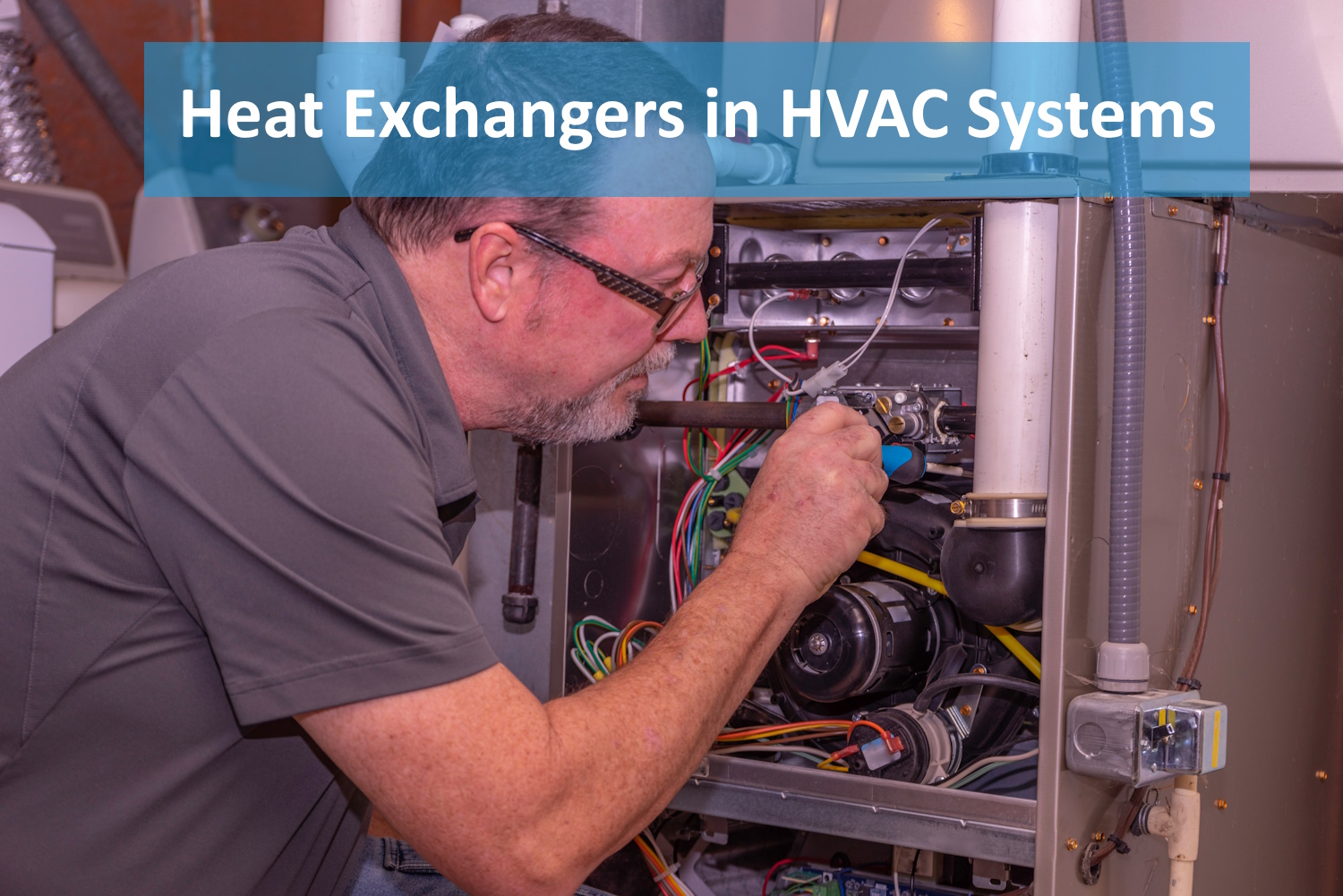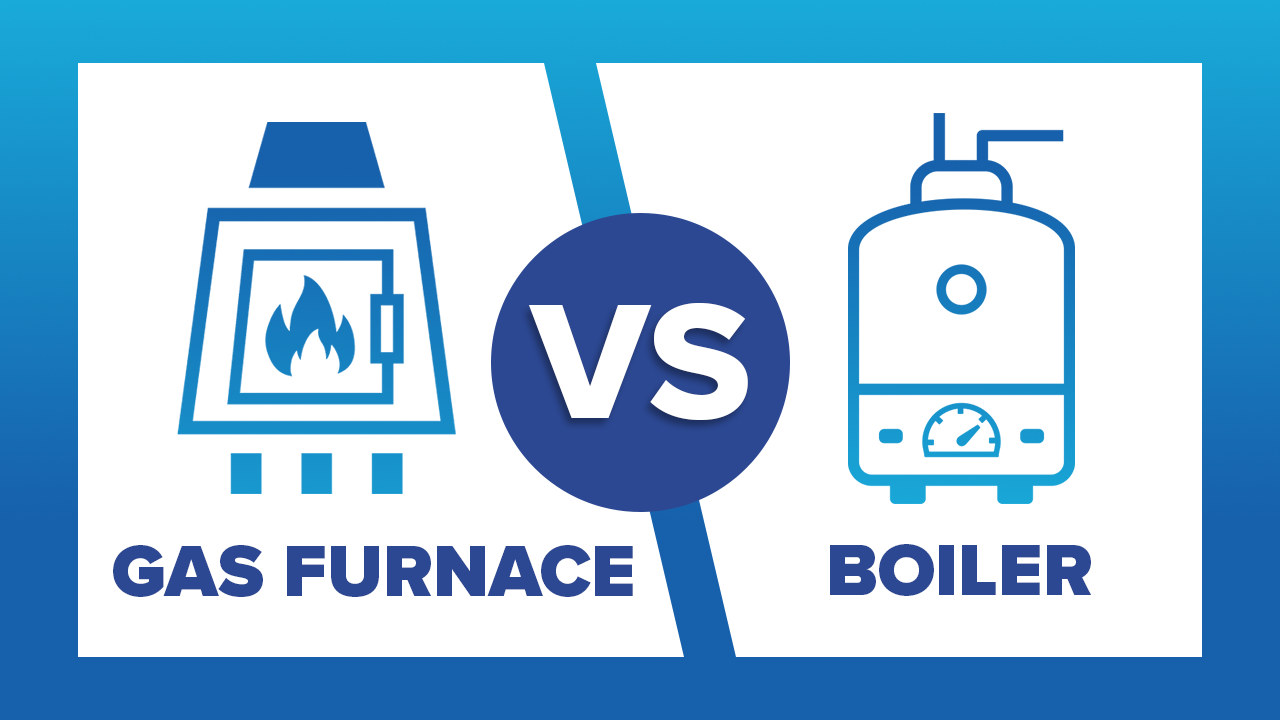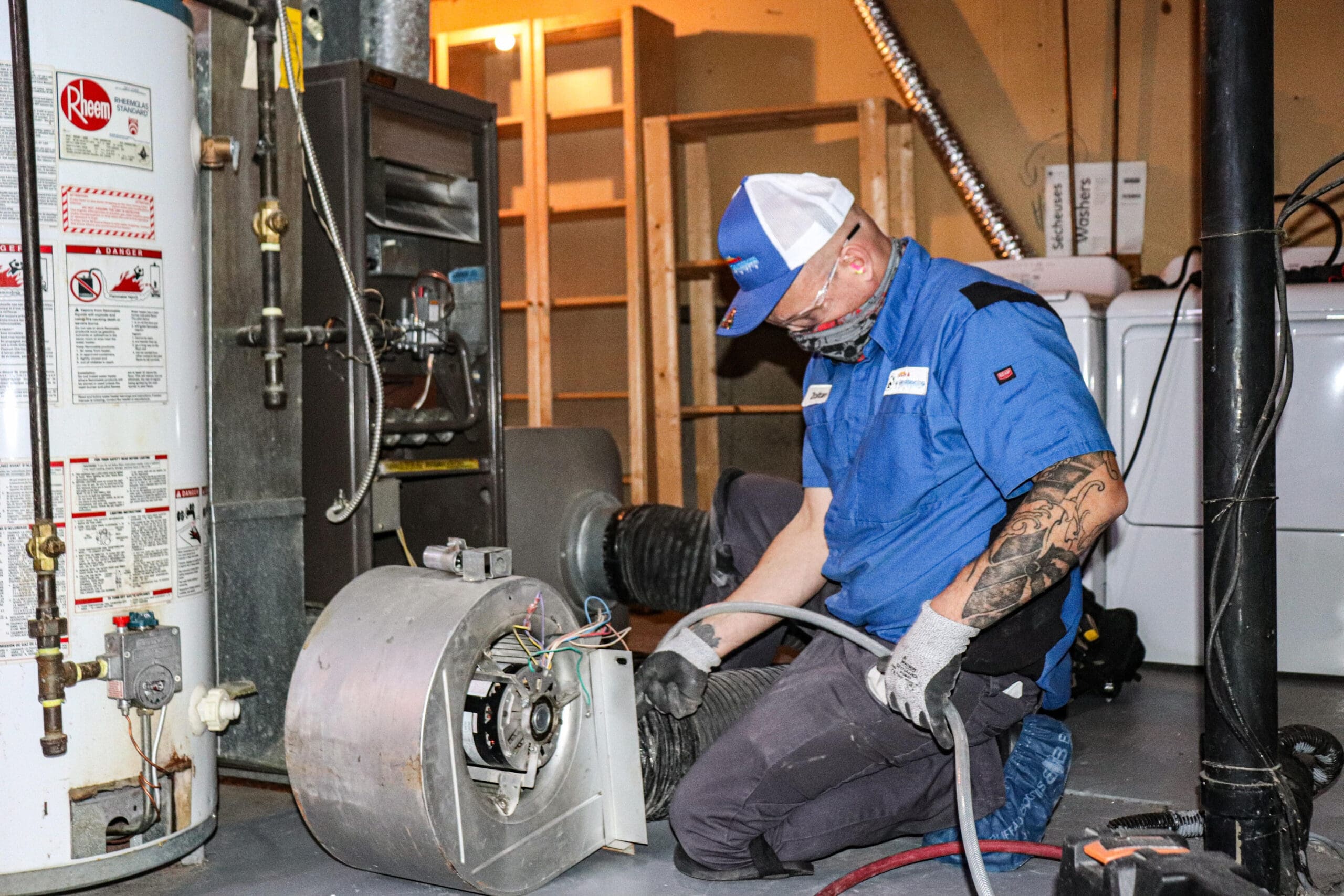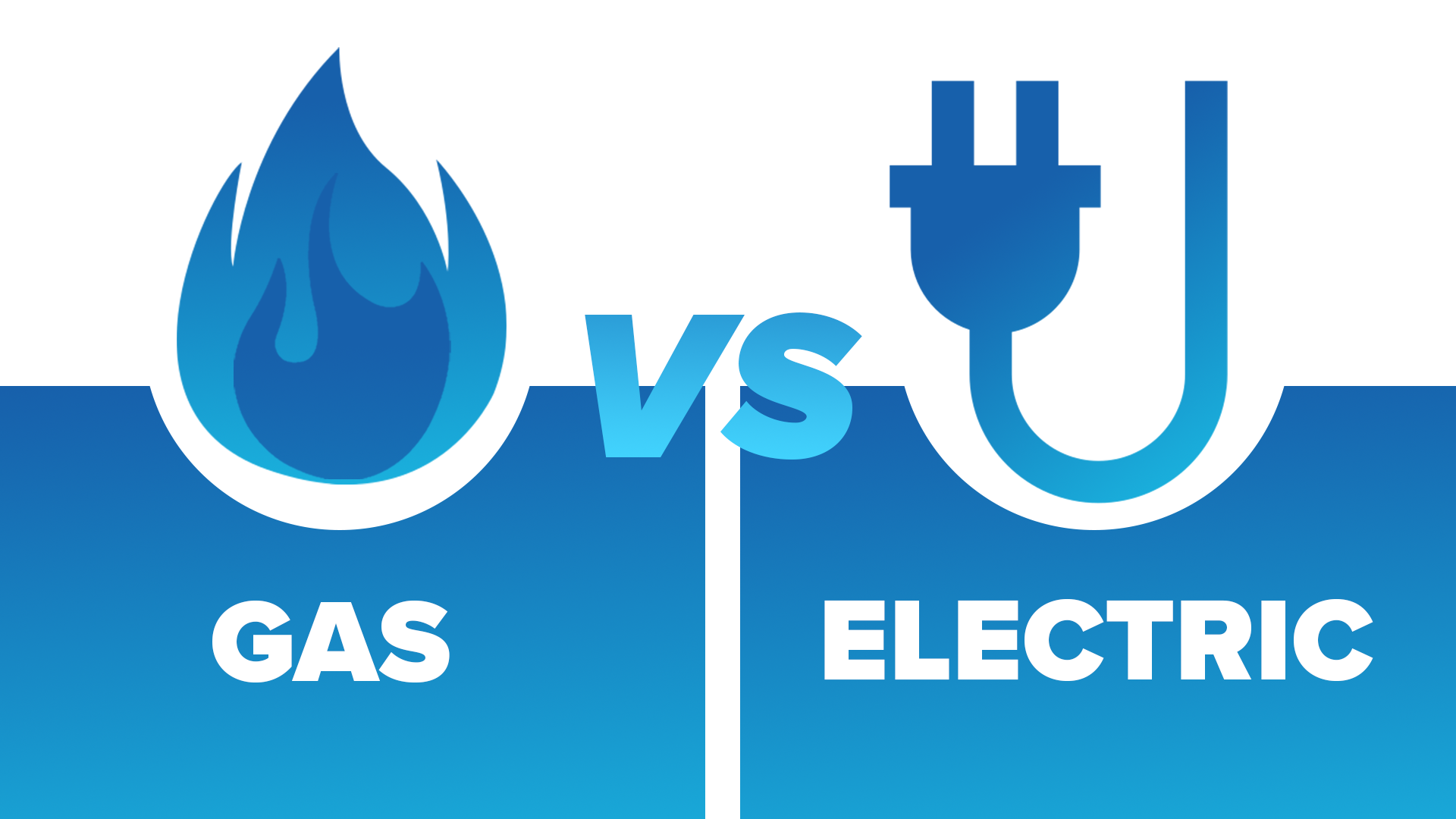When it comes to heating your home, selecting the right system can be a challenge…

Heat Exchangers in HVAC Systems: Efficiency and Comfort
When it comes to home comfort, most people focus on the thermostat and the cool air or warm breeze it delivers. However, behind the scenes, the heat exchanger plays a crucial role in ensuring your HVAC system operates efficiently and effectively.
They’re the unsung heroes that make your HVAC system work. Whether you’re cooling down in the summer or heating up in the winter, the Heat Exchanger is the heart of the operation.
In this article, we’ll delve deeper into the importance of heat exchangers, how they work, common issues, and essential maintenance tips. By understanding the role of heat exchangers, you can ensure your HVAC system operates at its peak performance, providing you with optimal comfort and energy efficiency.
What Is a Heat Exchanger?
A heat exchanger is a vital component in your HVAC system responsible for transferring heat between indoor and outdoor environments. It’s essentially the heart of your heating and cooling system, enabling it to maintain comfortable temperatures year-round.
How Does a Heat Exchanger Work?
In a furnace, the heat exchanger transfers heat from the combustion process to the air that circulates through your home. In an air conditioner, it absorbs heat from your indoor air and releases it outside.
Types of Heat Exchangers:
- Shell and Tube: This is the most common type, featuring a series of tubes within a cylindrical shell.
- Plate and Frame: This type uses a series of corrugated plates to transfer heat between two fluids.
- Coil: Coil heat exchangers are often used in air conditioners, with refrigerant flowing through a series of tubes surrounded by air.
The Hidden Danger of Cracked Heat Exchangers
A cracked heat exchanger can pose a serious safety hazard. If left unchecked, it can allow carbon monoxide, a deadly gas, to leak into your home. Symptoms of carbon monoxide poisoning include headaches, dizziness, nausea, and fatigue.
How to Detect a Cracked Heat Exchanger:
- Unusual Noises: Listen for strange sounds coming from your HVAC system, such as rattling or banging.
- Musty Odor: A musty or sulfurous smell can be a sign of a cracked heat exchanger.
- Decreased Efficiency: If your HVAC system is struggling to heat or cool your home effectively, it could be due to a damaged heat exchanger.
If you suspect a cracked heat exchanger, it’s crucial to contact a professional HVAC technician for immediate inspection and repair.
How Neglecting Your Heat Exchanger Impacts Efficiency, Comfort, and Safety
A dirty or damaged heat exchanger can significantly impact your HVAC system’s performance and your home’s comfort. When a heat exchanger is compromised, it can lead to:
- Decreased Efficiency: Reduced heat transfer efficiency can result in higher energy bills and increased strain on your HVAC system.
- Uneven Heating or Cooling: A damaged heat exchanger may cause hot or cold spots in your home.
- Safety Hazards: As mentioned earlier, a cracked heat exchanger can release carbon monoxide, posing a serious health risk.
Why DIY Inspections Aren’t Enough
While you might be tempted to inspect your heat exchanger yourself, professional HVAC technicians have the expertise and specialized equipment to identify potential problems that may not be apparent to the untrained eye.
Regular maintenance by a qualified technician includes:
- Visual Inspection: A thorough examination of the heat exchanger for signs of damage, corrosion, or dirt buildup.
- Cleaning: Removing dirt and debris from the heat exchanger to improve efficiency.
- Performance Testing: Assessing the heat exchanger’s performance to identify any issues.
- Safety Checks: Ensuring the unit is operating safely and free of leaks.
By scheduling annual maintenance, you can help prevent problems and ensure your heat exchanger operates at its peak efficiency.
The Importance of Annual Heat Exchanger Maintenance
Regular maintenance is crucial for maintaining the health and efficiency of your heat exchanger. Here’s why:
- Preventative Care: Regular inspections can help identify and address minor issues before they escalate into major problems.
- Improved Efficiency: A clean and well-maintained heat exchanger operates more efficiently, reducing energy consumption and saving you money.
- Safety: Regular maintenance helps prevent safety hazards such as carbon monoxide leaks.
- Longevity: Proper care can extend the lifespan of your HVAC system, saving you money on replacement costs.
What You Can Expect from JPS Furnace and Air Conditioning Maintenance
When you choose JPS Furnace and Air Conditioning for your Furnace Repair and Maintenance, you can expect:
- Comprehensive Inspections: Our technicians conduct a thorough inspection of your heat exchanger and all other HVAC components to ensure everything functions efficiently.
- Expert Recommendations: We provide recommendations for necessary repairs, upgrades, or preventative maintenance based on a detailed evaluation of your system’s condition.
- High-Quality Service: With experienced and trained technicians, JPS guarantees high-quality HVAC maintenance, including cleaning and performance testing of key components.
- Lifetime Unit Replacement Warranty: Enjoy a lifetime warranty on your furnace’s heat exchanger for most of our units, as long as you own your home, by completing yearly maintenance with JPS Furnace & Air Conditioning (T&Cs apply). This coverage offers long-term protection and peace of mind, ensuring your furnace runs efficiently for years to come.
- Customer Satisfaction: We prioritize your satisfaction, ensuring that every service call delivers exceptional results tailored to your home’s HVAC needs.
By choosing JPS Furnace and Air Conditioning, you’re not only receiving expert care for your HVAC system but also investing in long-lasting protection and comfort with our lifetime unit replacement warranty.
Conclusion
A well-maintained heat exchanger is essential for the efficient and safe operation of your HVAC system. By understanding the importance of regular maintenance, scheduling professional inspections, and addressing any issues promptly, you can protect your home’s comfort, safety, and energy efficiency.
Key Takeaways:
- Regular maintenance is crucial: Schedule annual inspections to prevent problems and ensure optimal performance.
- Professional repair is essential: If you suspect a problem with your heat exchanger, contact a qualified HVAC technician.
- Preventive care: By taking proactive steps to maintain your heat exchanger, you can save money on repairs and extend the lifespan of your HVAC system.
By prioritizing heat exchanger maintenance, you’re investing in your home’s comfort, safety, and long-term well-being.



